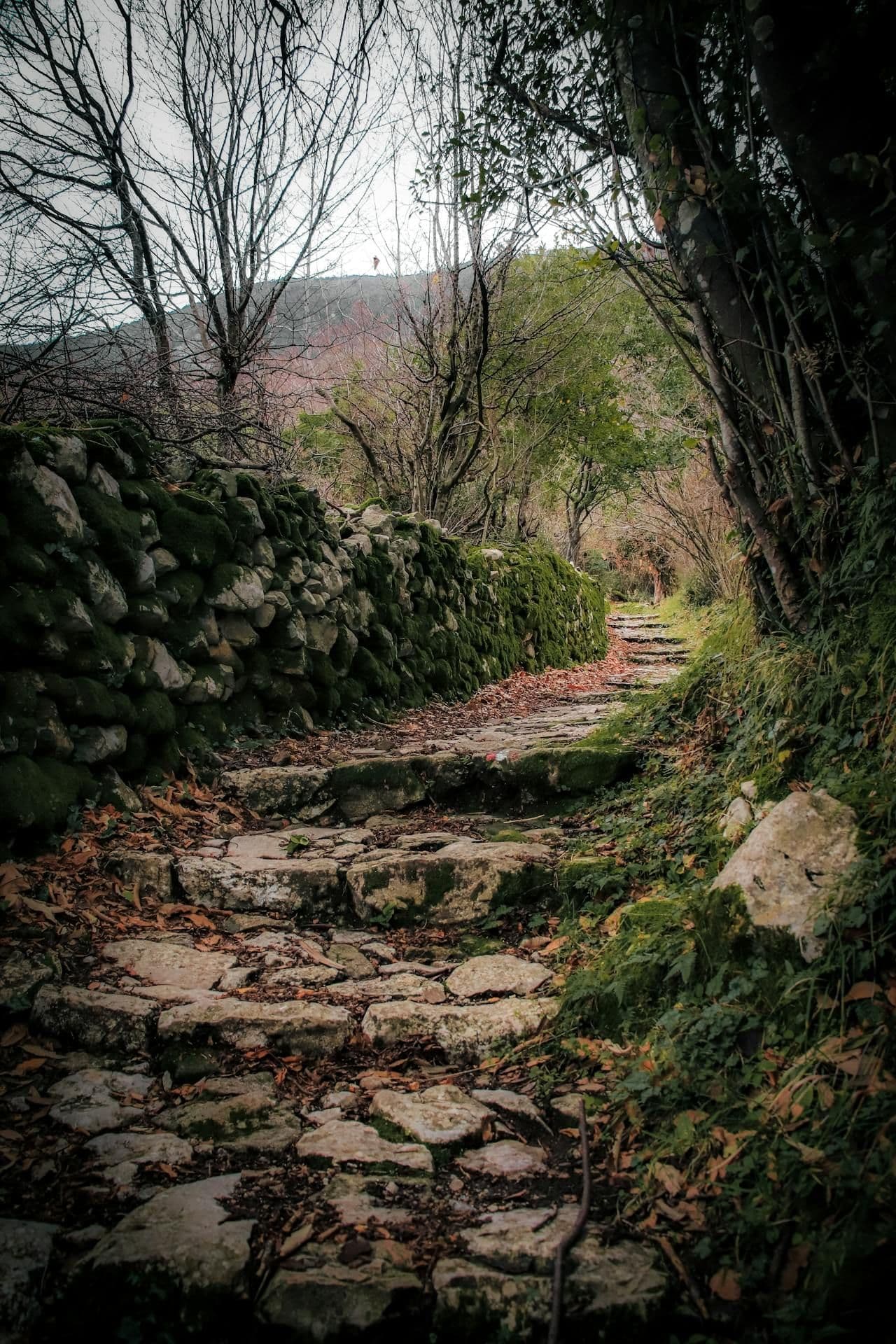The Village That Waits for You: Gornji Stoliv, Montenegro
Discover Gornji Stoliv, a hidden gem above Kotor Bay in Montenegro—stone houses, fig trees, and stillness untouched by tourism.

The path begins with olive trees. Their trunks twist like old men telling jokes, their leaves silvered by the Adriatic light. The trail is steep, but not unfriendly—it invites you upward, away from the waterfront bustle of Kotor’s bay, toward a village most maps barely acknowledge.
Gornji Stoliv.
It isn’t abandoned, not exactly. But it isn’t performing for tourists either. When I reached the first stone house, its shutters were closed, its roof sagging in places, its garden wild with rosemary. And yet, the air was thick with presence. You feel it in the way the stones hold heat, in the way the breeze carries the smell of salt mixed with pine.
I stopped by a low wall where a cat regarded me as though I’d arrived late to an appointment. Behind it, a fig tree drooped with fruit—green skins splitting just enough to show the sweetness inside. I picked one, cautiously, and the taste was honey with a hint of smoke, as if the sun itself had been preserved there.
Further up, a chapel waited with its doors open. No one inside, no priest, no candles lit. Only dust caught in shafts of light, and silence thick enough to be a hymn. I sat in the coolness, listening to the faint ring of goats’ bells on the hillside. The sound belonged both to now and to centuries past.
A man appeared later, walking with the deliberate pace of someone who had never needed to hurry. He carried a basket of herbs. “Few come here,” he said in careful English, “but those who do, remember.” Then he wished me dobar dan and continued up the hill, as if he had simply stepped out of the mountain for a moment to make sure I was paying attention.
What struck me most was not what Gornji Stoliv had, but what it chose not to offer: no cafés promising Wi-Fi, no souvenir stalls, no soundtrack except for cicadas and wind. The village asked nothing of me, and in return, gave me the rarest gift in travel: stillness.
When I descended back to the bay, where restaurants laid out fish fresh from the water and yachts crowded for a view of the sunset, I felt as though I had stepped out of a dream. I could still taste fig on my tongue, still hear the faint echo of goat bells, still feel the weight of a place that exists without needing an audience.
Hidden gems aren’t about being untouched—they’re about being unhurried. Gornji Stoliv will not vanish if no one writes about it. It will keep waiting, in its quiet way, for the next traveler willing to climb the path and listen.
Erik
Erik is a travel writer and photographer who has spent over a decade exploring Southeast Asia's hidden corners. When she's not discovering new destinations, she's sharing her adventures and practical tips to help fellow travelers create meaningful experiences.